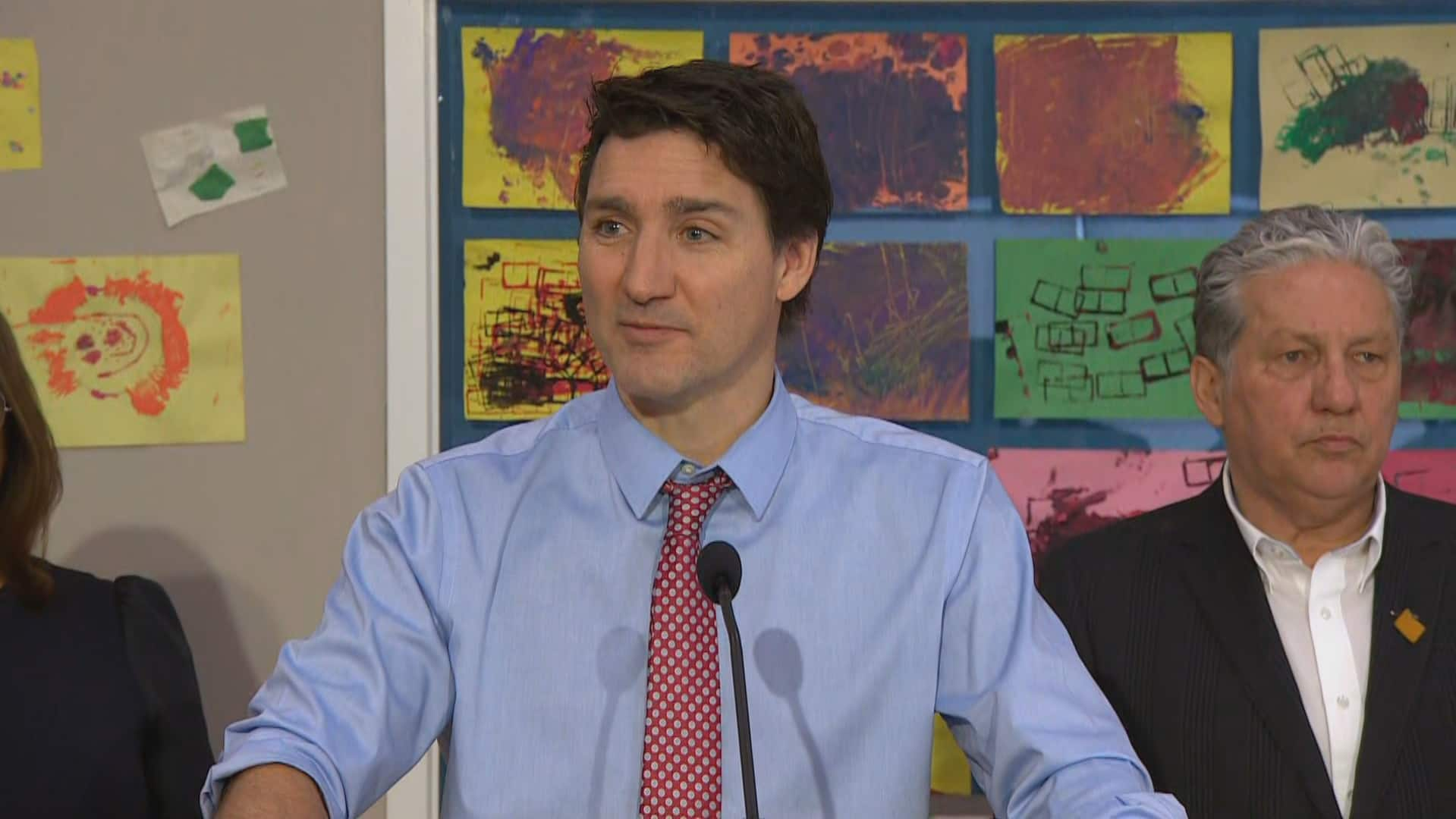Prime Minister Justin Trudeau pushed back at questions Friday about calling a public inquiry into claims that Beijing interfered in Canada’s recent elections, telling reporters that the probes already underway are sufficient.
Trudeau is under pressure from his political opponents to launch an inquiry after media reports citing unnamed sources said the Chinese communist regime has co-opted some Canadian politicians. A Commons committee passed a motion Thursday in an attempt to compel the government to act.
Speaking to reporters at a child care announcement in Winnipeg, an animated Trudeau said his government has been seized with the issue of foreign interference for years and put in place a system to actively monitor meddling by China and other bad actors.
When asked why he won’t call an inquiry now, Trudeau said senior public servants working on the Critical Election Incident Public Protocol (CEIPP) already have reviewed the 2019 and 2021 campaigns and concluded that, while there was some Chinese interference, those actions did not compromise the final outcomes.
Former senior public servant Morris Rosenberg released his review of the 2021 campaign earlier this week.
He found that the Government of Canada did not detect foreign interference that threatened Canada’s ability to hold free and fair elections in 2019 and 2021. He also offered a series of recommendations meant to prevent foreign interference in the future.
Conservative Leader Pierre Poilievre has said the Rosenberg report isn’t credible because Rosenberg previously held a role with the Trudeau Foundation, a non-profit named for the prime minister’s father. That foundation also received a $200,000 donation from an individual with ties to China’s government — money that was returned this week.
Trudeau said Friday the public service picked Rosenberg for the job — and his government had no role in the appointment.
Trudeau also pointed out that the House of Commons procedure and House affairs committee is also in the midst of its own probe and the top-secret National Security and Intelligence Committee of Parliamentarians (NSICOP), which was created by the Liberal government, is reviewing all of the intelligence about the 2021 vote.
“All of these processes are going on and demonstrate the seriousness with which this government and this country needs to take the question of foreign interference,” Trudeau said.
“Canadians can have confidence in our institutions, in our democracies and our ability to defend ourselves.”
WATCH: PM says he shares concerns about foreign election meddling
Prime Minister Justin Trudeau says his government has taken ‘significant actions’ since 2015 to respond to the threat of foreign interference in elections.
Beijing isn’t just meddling in elections, Trudeau said — they’re also trying to bully Chinese-Canadians.
Cherie Wong is the executive director of Alliance Canada Hong Kong, a group of pro-democracy advocates in Canada.
In an interview with CBC Radio’s The House, Wong said the Chinese-Canadian community has been on the front lines of Beijing’s interference for a long time.
Wong said China’s pressure on the community can sometimes be extreme, involving acts of harassment and intimidation targeting dissidents who speak up against Beijing — but it can also take more subtler forms.
“It’s a form of influence that’s not necessarily hardline or them saying, ‘You must do this and you must obey,’ but rather a form of soft pressure through social acquaintances, through economic and business affairs,” she said.
“For the diaspora, we’ve been warning about this type of influence coming from state actors since the 1990s. It’s definitely not new.”
Wong said Chinese-Canadians who speak up against Beijing’s abuses often see their families in Hong Kong and mainland China pay a price.
“I am scared. I am worried. I don’t speak to my family back home very often. I chose to cut off ties with them in hopes that it would make them safer. I don’t know if it does but I think it’s a way for me to negotiate going public,” she said.
Wong said probes into China’s interference are long overdue but she added she’s nervous about an anti-Asian backlash.
She said there’s a lot of “nastiness” and “racist undertones” to the political debate over election meddling.
Foreign Minister Mélanie Joly told her Chinese counterpart Qin Gang on the sidelines of the G20 summit in New Delhi Friday that Canada will never tolerate any form of foreign interference in its internal affairs, according to a statement from Joly’s office.
Joly was “direct, firm, and unequivocal” in her first meeting with Qin as China’s foreign minister, said the statement.
Beijing has denied claims it attempted to interfere in Canada’s last two elections.

“Canada will never tolerate any form of foreign interference in our democracy and internal affairs by China,” Joly told Qin, according to the statement.
“We will never accept any breach of our territorial integrity and sovereignty. We will never accept any breach by Chinese diplomats of the Vienna Convention on Canada’s soil.”
Qin has rejected allegations that Chinese embassies and consulates in Canada were trying to interfere in Canadian elections, calling them “completely false and nonsensical.”






More Stories
What Trudeau’s podcast appearances say about the Liberals’ next ballot box question
ANALYSIS | In videos and podcasts, Poilievre and Trudeau are eager to explain themselves — at length | CBC News
South Africa celebrates 30 years since end of apartheid, but discontent grows – National | Globalnews.ca